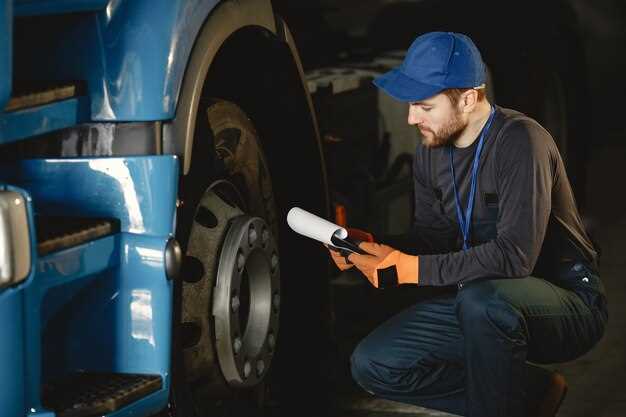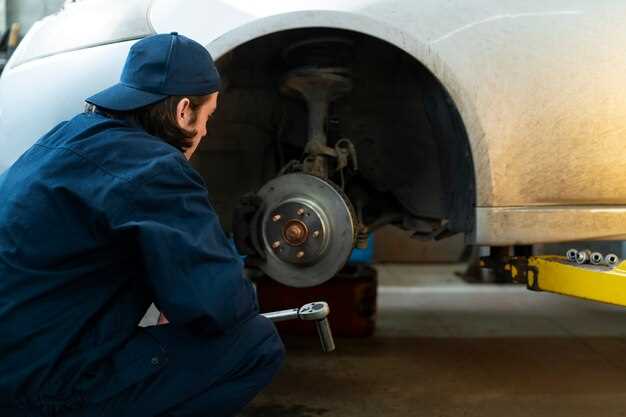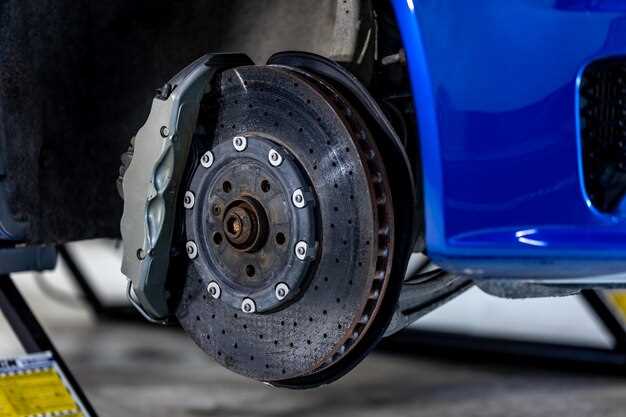

When operating heavy diesel trucks, especially in towing scenarios, the importance of an effective braking system cannot be overstated. The combination of immense weight and the demands of transporting heavy loads requires a braking system that can deliver reliability and performance under pressure. Standard brakes often fall short, leading to increased wear and potential safety hazards on the road.
Upgrading the brake components of heavy diesel trucks is a crucial step towards ensuring optimal safety and performance. These upgrades not only enhance stopping power but also improve the overall driving experience. Whether it’s for long-haul trips or navigating through challenging terrains, investing in high-quality brake systems can make a significant difference in both performance and peace of mind.
In this article, we will explore the top brake upgrades tailored specifically for heavy diesel trucks. From high-performance brake pads to advanced cooling systems, we will delve into the best options available to enhance your truck’s braking capabilities. Prepare to discover how these upgrades can transform your heavy diesel towing experience, ensuring safer and more efficient journeys for both you and your cargo.
Choosing the Right Brake Kit for Towing Heavy Loads
When it comes to towing heavy loads, selecting the appropriate brake kit is crucial for ensuring safety and performance. The right brake system must handle the added weight and provide reliable stopping power. Understanding the specific needs of your towing situation is the first step in making an informed choice.
Consider the weight of the load you plan to tow. Heavier loads generate more momentum, which puts additional strain on your braking system. Upgrading to a high-performance brake kit designed for heavy-duty applications can significantly enhance stopping power. Look for kits that include larger rotors, heavy-duty calipers, and high-friction pads to improve braking efficiency.
Heat dissipation is another critical factor when towing. Frequent stops can cause brake fade, reducing effectiveness. Kits equipped with ventilated rotors or those utilizing advanced materials can help manage heat better, ensuring consistent performance even under demanding conditions.
Additionally, compatibility with your truck’s existing systems is essential. Ensure that the brake kit you choose is specifically designed for your make and model. This guarantees proper fitment and optimal performance. Pay attention to the installation process as well; some kits may require modifications that could impact the overall effectiveness of the braking system.
Finally, consider the type of towing you will be doing. If you frequently navigate hilly terrain, look for a brake kit with features suited for mountainous driving, such as enhanced durability and improved bite. For flat terrain, a standard high-performance kit may suffice.
In conclusion, choosing the right brake kit for towing heavy loads involves understanding your vehicle’s requirements, the demands of your towing tasks, and the performance features of available kits. Investing in a high-quality brake upgrade will not only improve safety but also enhance your overall towing experience.
Enhancing Stopping Power: The Best Brake Components for Diesel Trucks

For heavy diesel trucks, effective braking systems are essential not only for safety but also for enhancing the overall performance, especially during towing operations. Upgrading brake components can significantly improve stopping power, ensuring that these powerful vehicles can safely handle heavy loads.
One of the most effective components to consider is the brake pads. High-performance brake pads are designed to withstand the increased heat and stress that comes with towing heavy loads. Look for pads made from advanced materials that offer superior friction and durability, allowing for consistent braking performance even under extreme conditions.
Another crucial upgrade is the brake rotors. Heavy-duty rotors, particularly those with vented designs, can dissipate heat more effectively and reduce the risk of brake fade. Opting for larger diameter rotors can also enhance stopping power, as they provide a greater surface area for braking force, improving overall performance during towing scenarios.
Additionally, an upgraded brake caliper can make a notable difference. High-performance calipers come equipped with larger pistons and improved sealing systems, allowing for more clamping force on the rotors. This increase in force translates to better braking responsiveness, which is vital when managing the weight of a fully loaded diesel truck.
Moreover, using stainless steel brake lines can enhance the braking system’s efficiency. Unlike rubber lines, stainless steel lines resist expansion under pressure, ensuring a firmer and more responsive pedal feel. This upgrade allows for precise control and quick response times, particularly when towing, where accurate braking is essential for safety.
Finally, investing in an aftermarket brake booster can significantly reduce the amount of pedal effort required to engage the brakes effectively. A more efficient boost can help drivers achieve stronger braking power without excessive strain, enhancing comfort during long hauls or when hauling heavy trailers.
In conclusion, enhancing stopping power for heavy diesel trucks involves a combination of high-quality brake pads, rotors, calipers, stainless steel lines, and an efficient booster. These upgrades not only improve safety but also ensure that truck drivers can confidently manage their vehicles under demanding conditions.
Installation Tips and Maintenance for Heavy-Duty Brake Systems

When installing heavy-duty brake systems on diesel trucks, begin by ensuring all components are compatible with the vehicle’s specifications. Verify that the brake pads, rotors, and hydraulic components are designed for the specific weight and towing capabilities of your truck. Use high-quality components that provide durability and performance under heavy loads.
Prior to installation, clean the mounting surfaces thoroughly to remove any rust, dirt, or old grease. This ensures a proper fit and reduces the chance of brake noise or premature wear. Follow the manufacturer’s instructions for torque specifications when fastening the brake components to guarantee optimal performance.
During the installation process, it is essential to bleed the brake lines to remove any air trapped within the system. Air in the lines can lead to a spongy brake pedal feel and reduce braking efficiency, especially when towing heavy loads. Utilize a brake bleeder kit for a more efficient process.
Post-installation, regularly inspect your brake system for signs of wear or damage. Check the brake pads for thickness and replace them if they have worn down to the minimum thickness recommended by the manufacturer. Monitor the brake fluid level and replace the fluid according to the specified maintenance interval to prevent moisture contamination and maintain braking performance.
Additionally, pay attention to the brake rotors. Look for any signs of cracking or warping, especially after towing. If the rotors are damaged, they should be resurfaced or replaced to ensure smooth braking and to prevent vibration.
Lastly, consider scheduling regular brake system checks, especially after long hauls or heavy towing. Keeping records of your maintenance can help track wear patterns and identify any potential issues early on, ensuring the safety and efficiency of your heavy-duty brake system.







